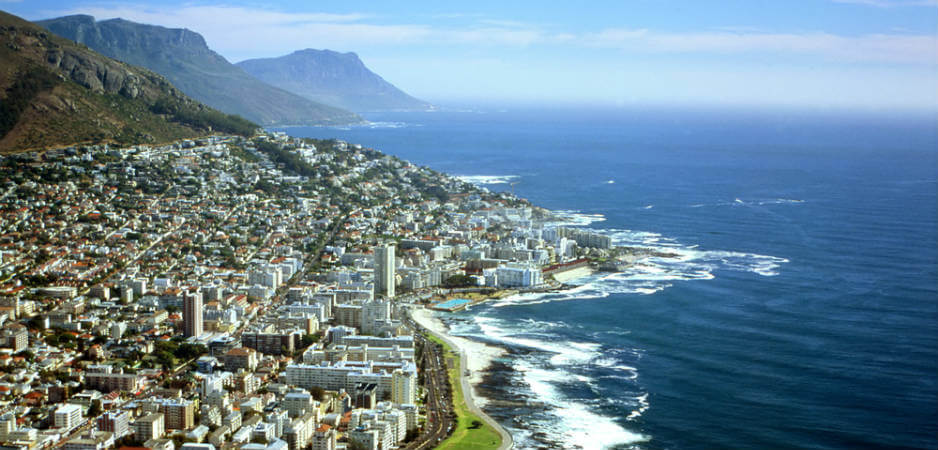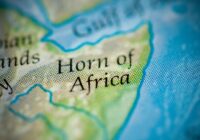A growing demographic can help South Africa pour funds into a struggling economy.
The last few years in South Africa saw a deterioration of economic growth and political wrangles around leadership and socio-economic policies. The country is facing both economic and job-growth conundrums. The self-inflicted economic woes affected by political motives have further resulted in the downgrading of South Africa’s credit rating on its foreign borrowings to junk status after the removal of the former Finance Minister Pravin Gordhan in March this year.
The critical questions arise: What can South Africa do to weather the economic storms and what can it offer the world? Where to from here?
According to Numbeo’s Cost of Living Index, South Africa ranked 91 with an overall cost of living index of 37.76 in 2016, which is almost half compared to most of the developed countries. The Mercer’s 2016 Cost of Living Survey further supports the notion that South African major cities such as Johannesburg and Cape Town are amongst the world’s least expensive cities for expatriates. It is critical to view low cost of living as a potential competitive advantage for economic development.
A recent research study by McKinsey Global Institute shows that three groups of consumers are set to generate half of global urban consumption growth from 2015 to 2030, which will reshape global consumer markets. These three demographic groups will generate half of all global urban consumption growth through 2030. Most significantly, the retiring and the elderly in developed economies: This group will grow by more than a third, from 164 million in 2015 to 222 million in 2030. It will generate 51% of urban consumption growth in developed countries and 19% of global urban consumption growth.
According to McKinsey, the retiring and elderly category in the developed world is projected to generate approximately $4.4 trillion in terms of global consumption. Health-care spending by those aged 60 and older is projected to grow by $1.4 trillion in the period to 2030. In developed economies today, this groups has an estimated per capita consumption of around $39,000 per year.
South Africa, with a low cost of living and a weak currency, is in a perfect position to take advantage of increasing consumption by this growing community. Foreigners departing from a country with a higher cost of living can enjoy a quality lifestyle in South Africa at reduced cost and an increase in purchasing power. This presents an excellent proposition in times where retirement-fund returns are often constrained to meeting the retirees’ future retirement spending needs. In addition to the financial affordability, South Africa also possesses world-class infrastructure, a strong private health-care system, good weather and an abundance of affordable recreational activities and ease of communication using English as the common language.
While the tourism industry focuses on short-term stays of less than six months, the duration can be enhanced through an introduction of affordable retirement tourism sector. Such an initiative would have a quicker turn-around time in terms of project implementation as compared to strategic infrastructure and/or industrialization projects. Therefore, the socio and economic impacts and results can be reflected much quicker than long-term infrastructure projects.
The cost of living for any individual is dependent on the person’s circumstances and needs. Health status and spending behavior can also make a significant impact on the individual’s cost of living and filter into economic variables such as Gross Domestic Product (GDP). A hypothetical example of approximately 100,000 people relocating to South Africa with an estimated cost of living spending of 200,000 to 300,000 rand ($15,500-23,000) per annum per individual can potentially generate anywhere between 20 and 30 billion rand annually for the economy. This is close to 0.5% of South Africa’s 2016 GDP and can potentially be used to address economic and job growth challenges for the country.
Let this topic be the beginning of a constructive discussion with possible creation of an industry for public and private sector participants to uplift the South African economy, as well as possible application to other international market participants.
*[This article is an extract from the paper “Market Opportunities in Times of Economic Crisis” by Li-Pei Huang. Read the full research report here.]
The views expressed in this article are the author’s own and do not necessarily reflect Fair Observer’s editorial policy.
Photo Credit: Mark Van Overmeire / Shutterstock.com
Support Fair Observer
We rely on your support for our independence, diversity and quality.
For more than 10 years, Fair Observer has been free, fair and independent. No billionaire owns us, no advertisers control us. We are a reader-supported nonprofit. Unlike many other publications, we keep our content free for readers regardless of where they live or whether they can afford to pay. We have no paywalls and no ads.
In the post-truth era of fake news, echo chambers and filter bubbles, we publish a plurality of perspectives from around the world. Anyone can publish with us, but everyone goes through a rigorous editorial process. So, you get fact-checked, well-reasoned content instead of noise.
We publish 2,500+ voices from 90+ countries. We also conduct education and training programs
on subjects ranging from digital media and journalism to writing and critical thinking. This
doesn’t come cheap. Servers, editors, trainers and web developers cost
money.
Please consider supporting us on a regular basis as a recurring donor or a
sustaining member.
Will you support FO’s journalism?
We rely on your support for our independence, diversity and quality.







